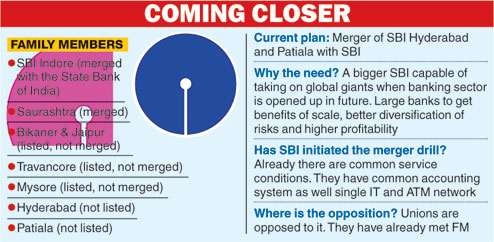New Delhi, Jan. 15: The government plans to offer tax incentives to increase the volume of digital transactions, the new objective of demonetisation.
Presentation papers prepared by various departments have sought service tax and income tax sops for traders and customers who opt for digital payments.
As banks and digital payment gateways such as Paytm charge a fee per transaction, the sops could help the traders and customers to offset the additional cost.

Though small traders have been given minor sops in their turnover tax if they go digital, officials feel more incentives are required.
At the same time, a section of the cabinet has backed a suggestion by the Ratan Watal-panel to impose a small tax on large cash transactions.
While the committee has not specified the amount of the tax, revenue department officials said they had recommended a quarter- to half-a-per-cent tax.
However, the move remains controversial as many within the government have advised that the tax, if introduced, may face legal challenges.
North Block hopes to push for more transactions in the digital mode to be able to monitor flows.
Government data show that the number of mobile payment transactions to pay for goods and commodities rose 5,000 per cent by December-end. The total value of such transactions also rose 4,600 per cent.
Similarly, UPI (Unified Payment Interface) payments, which allow transfer from one bank to another, rose 1,342 per cent in volume and 647 per cent in value.
Taxation experts argue cash transactions do not necessarily mean that they are unaccounted for and it is possible to generate and transfer black money or untaxed money even through the digital mode.
The government, however, has stuck to its line that cash could equal untaxed or "dirty" money, while digital transactions were more likely to be "clean".
Officials said US authorities, too, had been pushing for greater digitisation in all meetings on the US Foreign Account Tax Compliance Act (Fatca).
The act targets non-compliance by US taxpayers using foreign accounts and is quickly becoming the international standard for curbing tax evasion.
The government also plans to announce tax sops on the manufacture and sale of swipe machines, much in demand after demonetisation in retail outlets as well as institutions such as temples and NGOs.
Retailers have been complaining about the lack of availability of swipe machines and their cost.
The government hopes to increase the production of these machines as well as make them cheaper by reducing the taxes on them.
Similarly, the government is likely to accept a recommendation by the Ratan Watal-committee on incentivising digital payments made to government departments, such as income tax and transport authorities, by waiving the cost of the transactions.
The panel has recommended that "when government acts as a merchant, it should bear the cost of electronic payments and not pass them on to consumers (such as merchant fees on card payments or mobile payments such as UPI)". The idea is that the government should negotiate with banks and payment gateways and lower the fees and absorb them instead of passing them on to the citizens.











